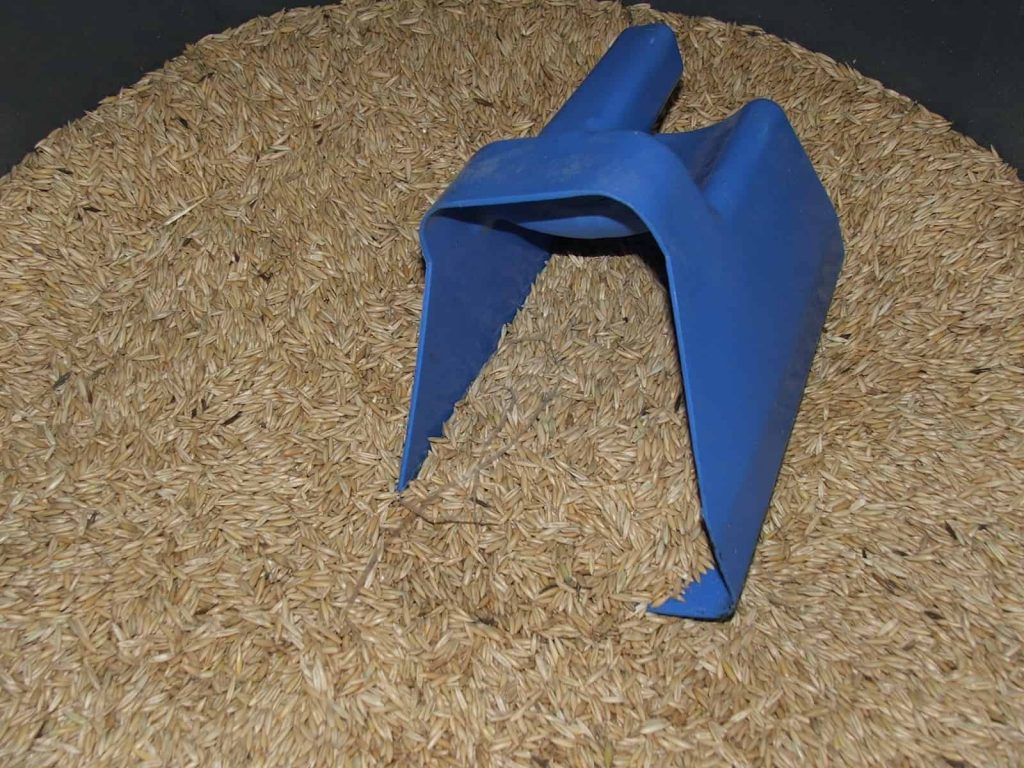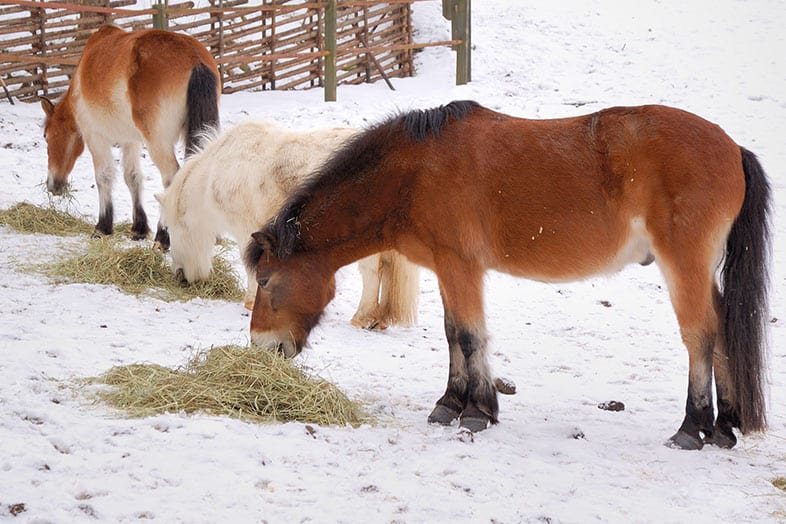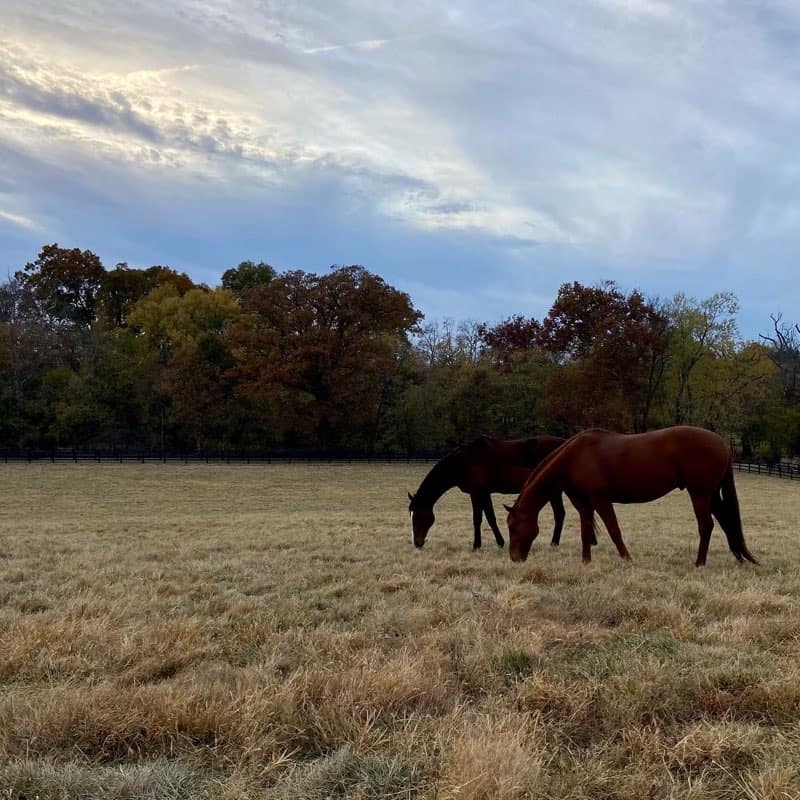
Caring for Your Horse in Winter
You might need to make adjustments to keep your horse healthy and happy through the winter.
Proper feeding practices for foals, adult horses, and older horses

You might need to make adjustments to keep your horse healthy and happy through the winter.

An equine nutritionist discusses the validity of serum allergy tests for horses and offers more accurate options.

If you are experiencing a hay shortage, consider these options for hay replacement.

The best winter weight management practice could be consistent monitoring of your horse’s body condition.

If you are thinking about switching up your horse’s brand of feed, consider these factors first.

Are you resolving to improve your horse’s nutritional status next year? An equine nutritionist shares her tips.

Let us not forget to pause to consider the basics when our horses are telling us something about their health.

Top of The Rockies alfalfa cubes are being investigated as the potential source of botulism infection in at least 15 horses.

Veterinarians across several UC Davis departments helped pinpoint and resolve a 20-year-old Arabian gelding’s chronic issue.

Find out what might happen if your horse eats that wreath hanging on his stall door.

Dr. Clair Thunes offers advice for preventing colic when the weather turns cold.

Learn how various components of the horse’s GI tract evolved to consume forage, and feed accordingly to prevent issues.

Keeping donor and recipient mares in moderate body condition might improve survival rates of transferred embryos.

Learn the difference between ration balancer feeds and supplements and how they benefit horses when pastures are scarce.

Learn how to keep horses and humans safe by storing your supplies and equipment properly.

There are 2 forms of equine gastric ulcer syndrome. A researcher describes how to prevent them.
Stay on top of the most recent Horse Health news with
"*" indicates required fields